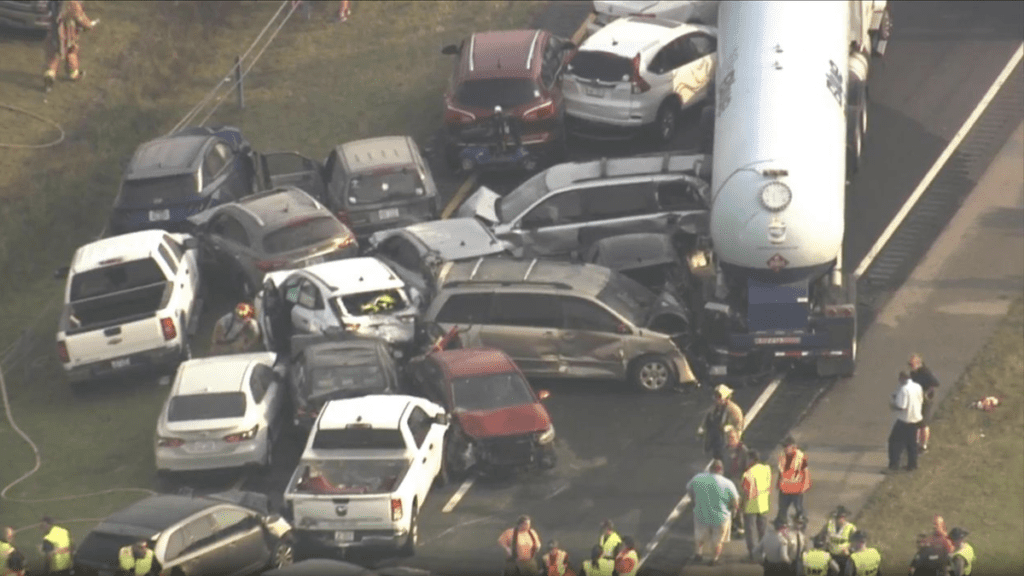24-Car Pileup In North Carolina Blamed On Smoke From Wheat Field Fire

Screenshot: WRAL
The eastern part of the U.S. is currently dealing with terrible smoke caused by Canadian wildfires, but don’t worry. The U.S. isn’t outsourcing its combustion problems to other countries. We can still cause plenty of problems with our own fires, thank you very much. Like the recent fire in eastern North Carolina that caused a 20-plus-car pileup.
According to Bob: Why SUVs All Sort of Look the Same
Raleigh’s WRAL reports that on Tuesday, a pileup occurred near the Wilson County and Wayne County line east of the city. It happened at about 6:00 PM on Interstate 795 and involved 24 vehicles, including one propane truck. Thankfully, the propane tank was empty at the time of the wreck. Otherwise, this could have been a much more serious crash.
Multiple drivers reportedly told WRAL that the pileup was caused by a fire in a nearby wheat field that reduced visibility to “essentially zero.” As you can see in the screenshot above, it was a gnarly wreck with vehicles hit from multiple sides. The interstate has since been reopened, but it was reportedly closed for several hours as crews worked to clear the road and eventually reopen it.
And while the pileup certainly wasn’t as bad as it could have been, there were reportedly a number of injuries. No serious injuries have been reported, but Wilson County Community Preparedness Coordinator Rodney Dancy told WRAL that 12 people were taken to the hospital with minor injuries.
While it’s unlikely that multiple drivers would make up the blinding smoke blamed for the pileup, the Department of Forestry is reportedly still going to investigate the claim. It will also look into what laws may have been broken by the owner of the wheat field that allegedly caused the crash, although it’s not clear what charges they may face if they set the fire at the wrong time or illegally close to the road.


